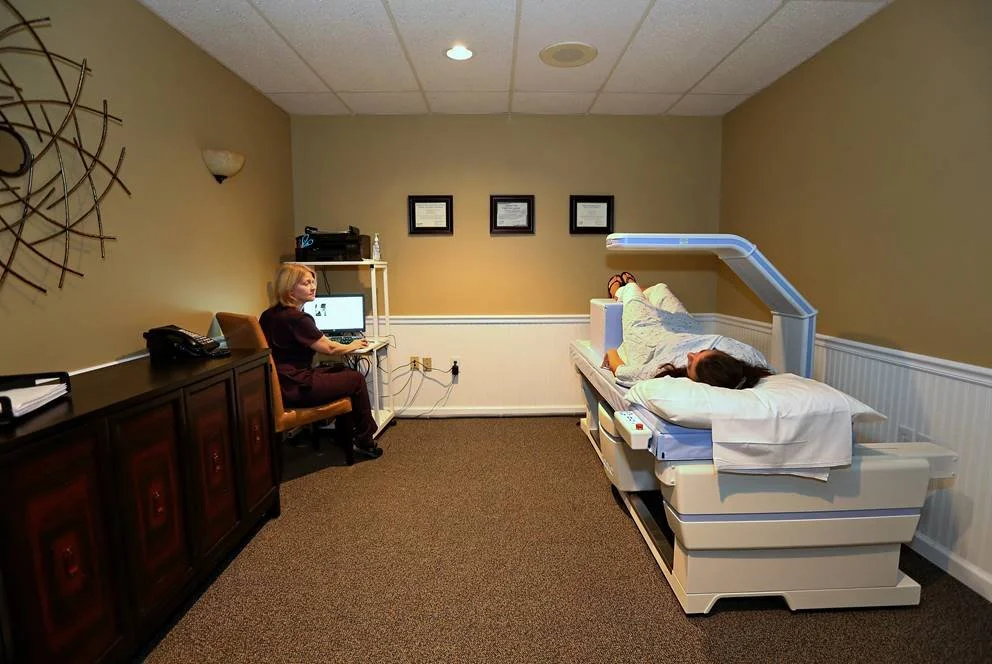Bone Densitometry (DXA)
Serving Latham & Clifton Park, NY
Osteoporosis is a major public health threat for 44 million Americans, 68% of whom are women. Since 1985 we have been invested in women's health care - please get in touch with us today to schedule an appointment.
Our Hologic Horizon C unit uses the latest advancements for fast, accurate bone density measurements.
Exam Prep For DXA (Bone Densitometry)
Exam Instructions
Preparation for DXA Scan: None.
However, you must wait at least 5 days after any tests using contrast (e.g., CT scans, nuclear medicine tests, and barium studies) before having a DXA.
If you wear clothing without buttons, snaps, or zippers, you will not have to undress for your exam.
Frequently Asked Questions About DXA Bone Density Testing
-
DXA (Dual Energy X-Ray Absorptiometry) detects early bone loss by measuring the bone mineral density of your spine and hip. DXA scanning is the most accurate diagnostic testing procedure available to measure bone density. DXA works like this: an X-ray composed of two energy levels is passed through your body.
The DXA scanning equipment measures the amount of X-ray absorbed by your bones and provides your doctor with a numerical reading of your bone strength called a T-score. Your measurements are then compared to typical healthy bone density measurement for your age, weight, sex and race which is called a Z-score.
-
DXA scanning is commonly used to diagnose and monitor osteoporosis or osteopenia, a condition of low bone mass that puts patients at risk for osteoporosis.
DXA scanning plays a vital role in:
Diagnosing osteoporosis in patients with risk factors or present fractures.
Assessing bone status in patients with diseases or at risk for medication-induced bone loss.
Determining a patient’s rate of bone loss and/or monitoring the effectiveness of treatment.
-
Experience. In 1985, we opened the first freestanding diagnostic imaging facility in the Capital Region and pioneered the use of advanced imaging within the local medical community.
In 1995, we introduced the first Hologic 4500C DXA scanner to the Capital District. We worked with both Georgetown University and Brigham and Women’s Hospital to help establish the guidelines for the T and Z scores used here today. We have consistently upgraded our DXA equipment since then to stay current with the technology.
-
DXA scanning is very safe. It involves a minimal amount of radiation, approximately one-tenth the dosage of a chest X-ray. If you are pregnant or think you might be, always inform our staff prior to your exam.
-
The entire exam takes about 10 minutes.
-
There is no preparation needed. However, you must wait at least 5 days after any tests using contrast before having a DXA (i.e.: CT Scans, Nuclear Medicine tests, Barium studies).
-
You will be positioned on your back on a padded table. We ask that you remain still and breathe normally while we scan through your lower spine and hip. There is no discomfort associated with this exam.
-
Our board-certified radiologists interpret your DXA exam. Our goal is to have a written report to your doctor within 24-36 hours of your exam. In most cases, the report is ready the same day.


